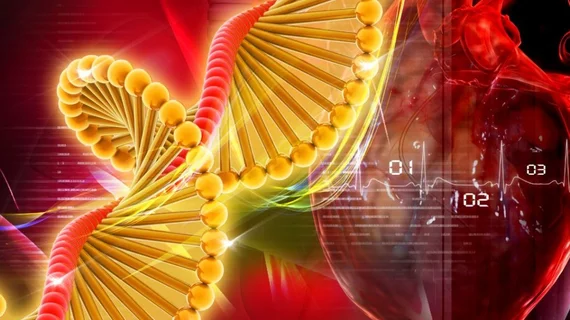Cardiologists identify 162 genes responsible for coronary heart disease
An international team of researchers has identified more than 150 genes commonly associated with coronary heart disease (CHD) and myocardial infarction (MI), sharing its findings in Circulation: Genomic and Precision Medicine.[1]
The group, which included specialists from the United States, Australia, Estonia and Germany, aimed to learn more about what leads to CHD and how it may be prevented. They tracked data from 600 CHD patients and an additional 150 healthy controls who underwent coronary heart artery bypass (CABG) surgery, using a high-powered supercomputer to gather information on thousands of different genes.
The final result was a list of 162 genes believed to cause CHD, including a breakdown of where in the body each gene makes its biggest impact. The genes were even ranked in order so that the one viewed as the most responsible for causing CHD was listed at the top.
“Some of the top genes identified on this list have never really been studied in the context of heart attacks before,” lead author Jason C Kovacic, MD, PhD, a professor at the Icahn School of Medicine at Mount Sinai in New York City and executive director of the Victor Chang Cardiac Research Institute in Australia, said in a prepared statement. “To find these new important genes is really exciting but also a real challenge — as no one yet knows exactly how many of them cause coronary heart disease.”
Kovacic also noted that one of the genes identified by the group was already on his radar.
“One of our previously suspected top genes — PHACTR1 — was validated as being among the top two genes for causing CHD,” he said. “We are very actively studying PHACTR1 in my lab as we know it causes not only coronary heart disease but also a whole range of other vascular diseases including migraine, fibromuscular dysplasia and spontaneous coronary artery dissection.”
Other genes from that list of 162, on the other hand, have never been seriously studied in a way that focused on CHD.
Looking forward, Kovacic et al. think their significant progress could potentially boost care for CHD patients all over the world and even help limit avoidable MIs.
“This refined and prioritized gene list we published in this study opens up many new possibilities in terms of more accurate genetic testing, as well as better understanding what causes heart attack, and developing targeted therapies for many of the new gene targets we have found,” Kovacic added. “As a cardiologist myself, that’s incredibly exciting and could eventually make a huge impact on my patients lives.
Related Acute Coronary Syndromes Content:
'Foaming' cells may help researchers evaluate CVD risk
Rural heart attack patients started taking longer to seek care when the pandemic began
Heart complication seen for the first time in a young patient after COVID-19 vaccination
Autopsies suggest we still have a lot to learn about COVID-19's impact on the heart
Reference:

